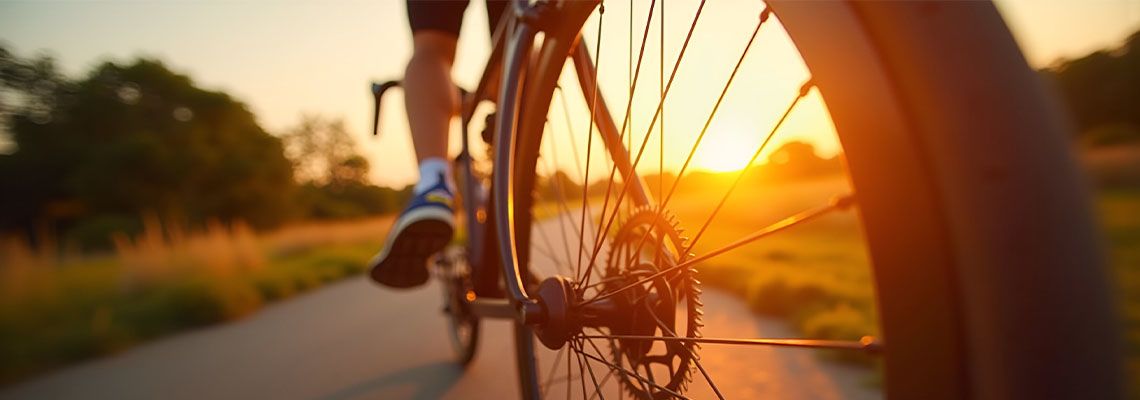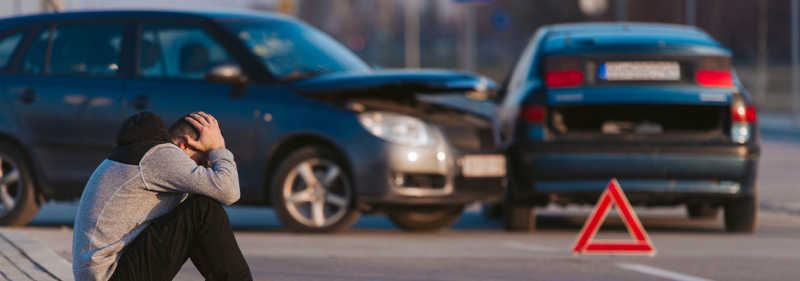
What Are the Bicycle Laws in Colorado?
Colorado is known for its beautiful scenery, active outdoor lifestyle, and a population that embraces cycling for both recreation and commuting. With an increasing number of bicyclists sharing the road with motor vehicles, understanding bicycle laws in Colorado is essential for everyone.
Whether you're an avid cyclist, a casual rider, or a motorist, knowing the legal rights and responsibilities on the road can help prevent accidents and reduce the likelihood of a personal injury claim.
At Gama Law Firm LLC, we represent injured cyclists in Denver, Colorado, and the surrounding communities. With over 70 years of combined experience handling injury cases, we understand the challenges cyclists face after a crash.
Bicycle accidents often involve serious injuries and complicated questions of liability. Here, we'll explore key aspects of Colorado's bicycle laws, outline how those laws apply in practical scenarios, and examine what happens when someone is injured due to a bicycle-related accident. If you've been involved in a bicycle crash, contact us today for experienced legal representation.
Bicyclists Are Treated as Vehicle Operators
Under Colorado law, bicyclists have the same rights and responsibilities as motorists. This means cyclists must obey traffic signals, signs, and general rules of the road. It also means that bicyclists are subject to the same duties, including stopping at red lights and stop signs, yielding to pedestrians in crosswalks, and riding with the flow of traffic.
Some of the specific laws that apply to bicyclists include:
Riding as far to the right as practicable, except when passing, preparing for a left turn, or avoiding hazards.
Using a bike lane when available, although it's not mandatory.
Riding no more than two abreast, and only when it doesn’t impede the normal flow of traffic.
Yielding the right-of-way to pedestrians in crosswalks and on sidewalks.
These laws are meant to foster a safe environment for everyone on the road. When cyclists follow these rules, they’re more likely to avoid dangerous situations and reduce the chances of a personal injury.
Helmet Laws and Safety Equipment
In Colorado, there’s no statewide law requiring bicyclists to wear helmets, regardless of age. However, wearing a helmet is strongly encouraged by safety professionals and law enforcement. Some local jurisdictions may have helmet ordinances for minors, so it's important to check city and county regulations.
Although helmets aren’t required by state law, bicycles must be equipped with certain safety devices:
A white front light visible from at least 500 feet at night
A red rear reflector visible from 600 feet
Reflective material on pedals or ankles for visibility
A working brake that allows the bicycle to stop within 25 feet from a speed of 10 mph on dry, level pavement
While not mandatory, these safety measures can play a significant role in minimizing injury severity in case of a crash. In a personal injury case, the use or non-use of safety gear may become relevant when determining fault or damages.
Common Causes of Bicycle Accidents
Despite efforts to promote road safety, bicycle accidents remain a concern in Colorado, especially in urban areas. Understanding the most common causes of these incidents can help cyclists and drivers alike avoid dangerous behaviors.
Some of the most frequent causes include:
Dooring accidents (when a parked car door opens into a cyclist's path)
Failure to yield at intersections
Unsafe lane changes or turns by drivers
Distracted driving or cycling
Driving or biking under the influence
Poor road conditions or lack of infrastructure
In many of these scenarios, a cyclist may suffer significant injuries, from broken bones to traumatic brain injuries. When these incidents occur due to someone else's negligence, the injured cyclist may have grounds for a personal injury claim to recover medical costs, lost wages, and other damages.
Rights and Duties of Motorists Around Cyclists
Motorists play a crucial role in preventing bicycle accidents. Colorado law sets clear expectations for drivers when sharing the road with cyclists. Failure to follow these rules can result in traffic violations and increase the likelihood of injury.
Here are several duties drivers owe to bicyclists:
Three-foot passing rule: When passing a bicyclist, motorists must allow at least three feet of clearance between their vehicle and the bicycle. This applies even if it means crossing a double yellow line.
No harassment or threats: Colorado law prohibits motorists from harassing, taunting, or throwing objects at bicyclists.
Yielding when turning: Drivers must yield to oncoming bicycles when making left turns and must check for cyclists before making right turns to avoid "right hook" collisions.
Avoiding distraction: Texting while driving is illegal in Colorado and can be especially dangerous in areas with heavy bike traffic.
When drivers ignore these rules and an accident occurs, they may be held liable in a personal injury lawsuit. It's important for injured cyclists to document the accident thoroughly, including taking photos, getting witness statements, and filing a police report.
What to Do After a Bicycle Accident in Colorado
If you're involved in a bicycle accident, your immediate steps can significantly affect your health and any future personal injury claim. Here is a step-by-step guide for what to do:
Seek medical attention: Even if your injuries seem minor, it's important to get evaluated by a medical professional.
Call the police: Request an officer to come to the scene to file an official report.
Document everything: Take photos of your injuries, your bicycle, the vehicle involved, and the surrounding area.
Get contact information: Collect names, phone numbers, and insurance details from everyone involved, including witnesses.
Don’t admit fault: Statements made at the scene can affect liability in a personal injury case.
Consult an attorney: Speaking with a legal professional can help you understand your rights and evaluate your case.
These actions not only protect your health and safety but also establish a clear record of the event, which may be critical in pursuing compensation.
Filing a Personal Injury Claim After a Bicycle Crash
When a cyclist is injured due to another party's negligence, a personal injury claim may be the path to recovering damages. This type of claim seeks compensation for medical bills, lost wages, property damage, and pain and suffering.
Colorado follows a modified comparative fault rule, meaning you can recover damages as long as you’re less than 50% at fault. However, your compensation will be reduced by your percentage of fault. For example, if you're awarded $100,000 but found to be 20% at fault, you'll receive $80,000.
Proving negligence in a personal injury case involves showing:
The defendant had a duty of care
The duty was breached
The breach caused the accident
The plaintiff suffered actual damages as a result
Because each case is fact-specific, it’s important to gather as much evidence as possible and consult someone familiar with personal injury law in Colorado.
Speak With an Experienced Personal Injury Attorney Today
Cycling is a popular and rewarding way to stay active, but it comes with legal responsibilities for both bicyclists and drivers. Understanding the laws that apply to cyclists can help prevent collisions, reduce the risk of personal injury, and clarify who may be at fault when accidents occur.
At Gama Law Firm LLC, we’ve seen firsthand how devastating bicycle accidents can be. If you or someone you care about has been injured while riding, you may have a valid personal injury claim. With decades of combined experience, we help clients throughout Denver, Aurora, Parker, Centennial, and Castle Pines pursue compensation for their injuries and losses.
Whether it involves dealing with insurance companies or litigating in court, we’re ready to help you understand your options and protect your rights. If you've been hurt in a bicycle accident, don't wait. Contact us today to schedule a free consultation and take the first step toward recovery.

